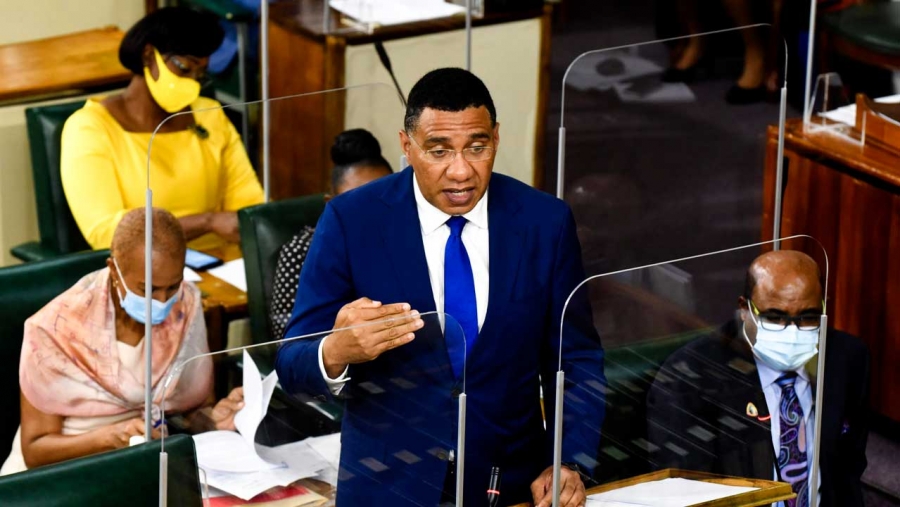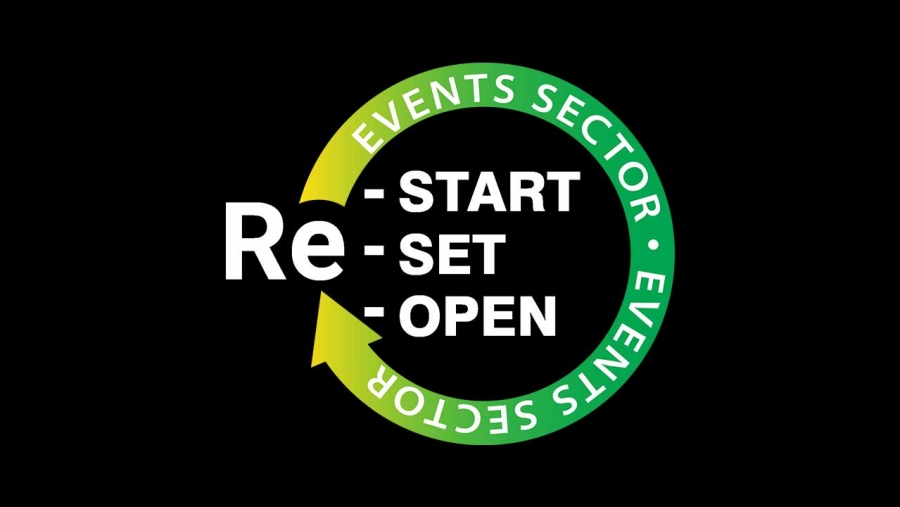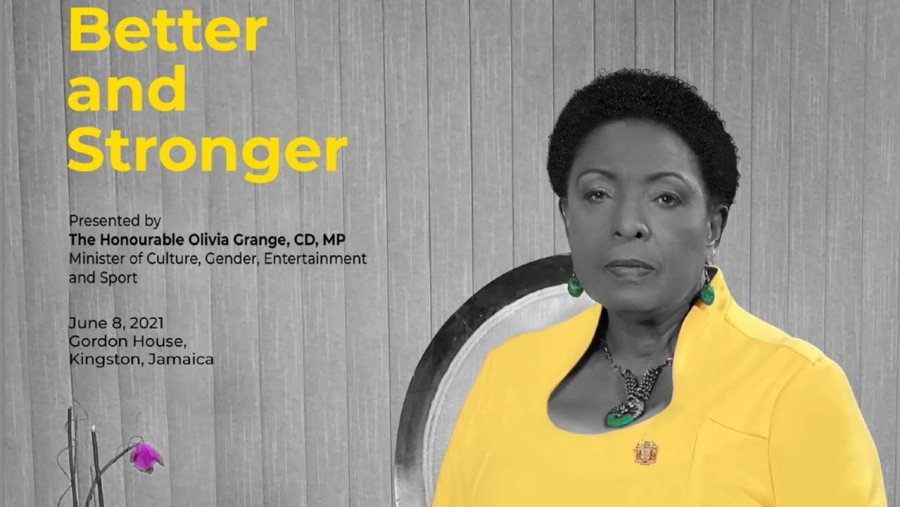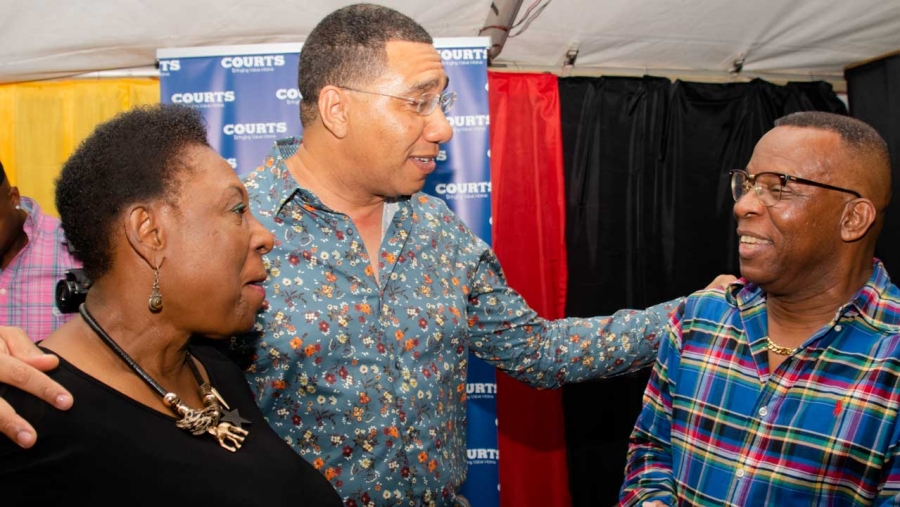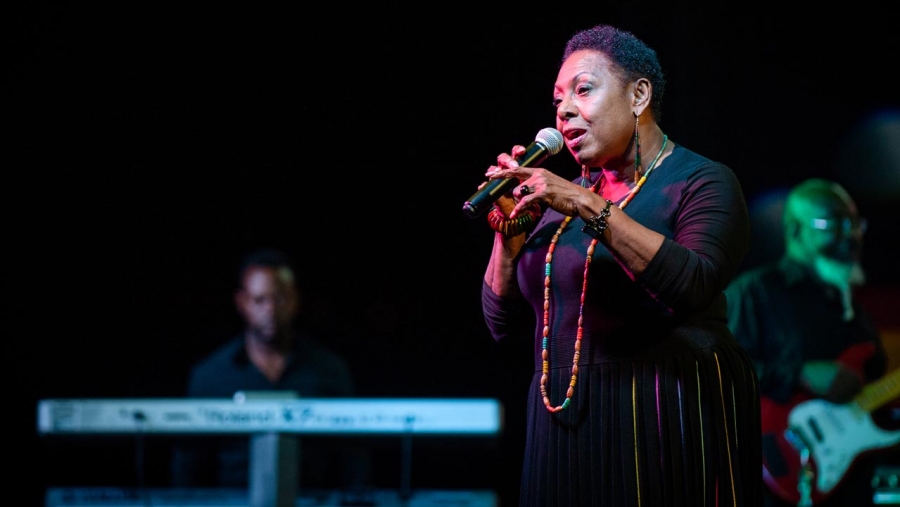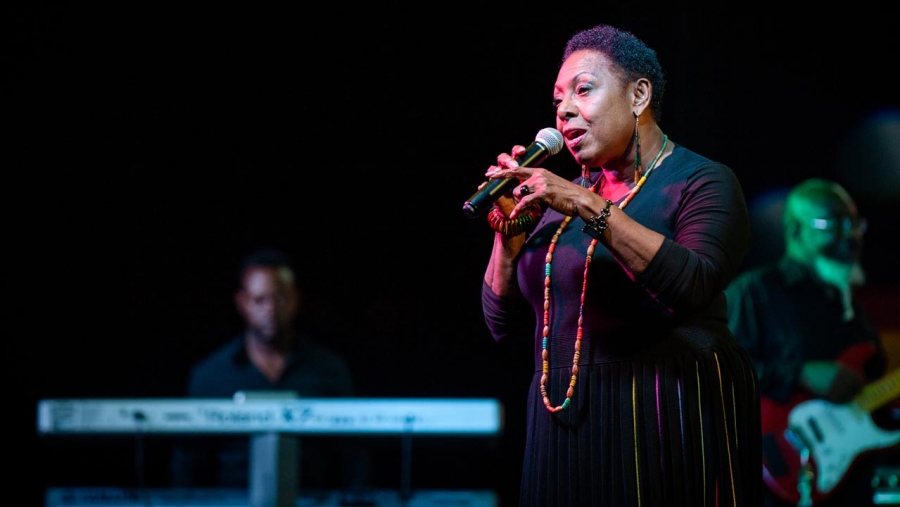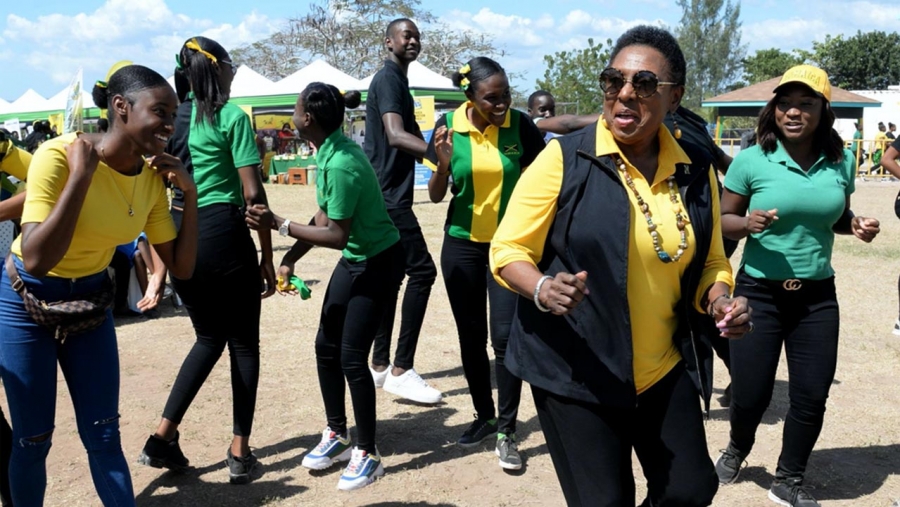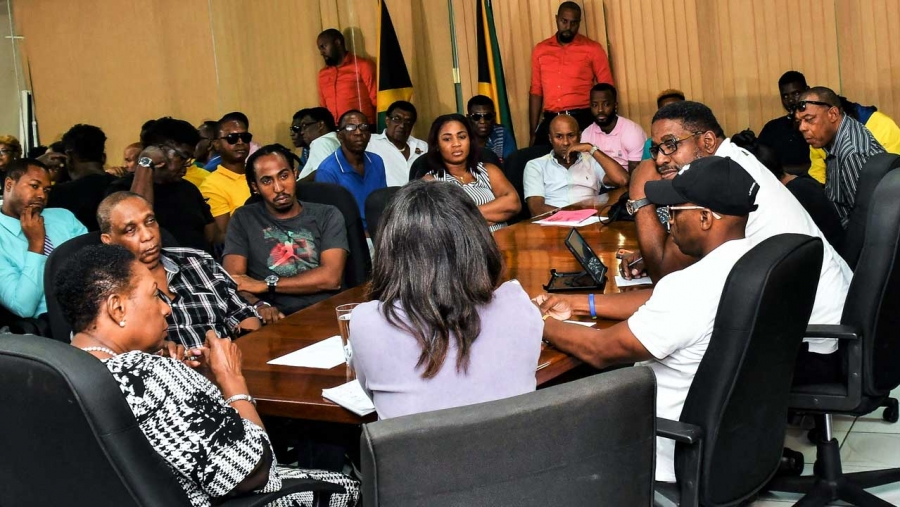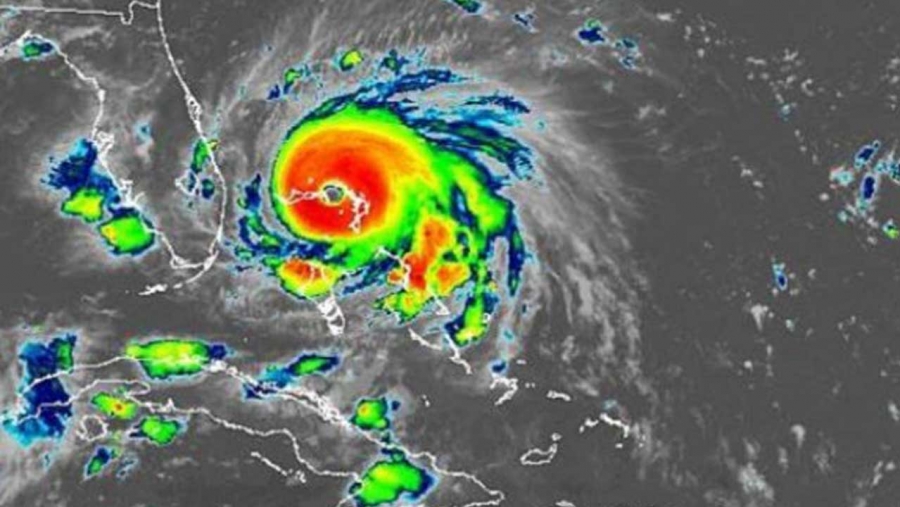Kingston, 10 August 2021 (JIS) - No permits will be granted for entertainment events over the next three weeks, as the Government moves to contain the current spike in coronavirus cases. From August 11 to August 31, no small or large events such as concerts, parties, tailgate parties and round robins will be permitted.
Prime Minister, the Most Honourable Andrew Holness, made the announcement during a digital press conference on Monday (August 9), where he outlined the revised coronavirus containment measures.
He stressed that the new measures will be strictly enforced, and warned that the police will close down any event that is being held illegally.
During this period, nightclubs and certain places of amusement are to be closed.
In addition, gyms, restaurants, zoos, parks, and bars are to operate at a maximum of 50 per cent of capacity. Capacity is determined by using the physical distance rule of one person to every 40 square feet of useable space for the area.
Mr. Holness further informed that no more than 50 persons will be permitted to physically attend a wedding and for annual and extraordinary general meetings of entities, the maximum number of persons permitted to attend physically is 50.
In terms of events hosted by public entities such as handover ceremonies, launches, groundbreakings, and opening ceremonies, Mr. Holness informed that no more than 30 persons are permitted to be in physical attendance.
The limit of 30 persons remains in place for funeral services and burials. This includes mourners as well as clergy and any support personnel. Burials can be done only on Mondays to Fridays during the hours of 9:00 a.m. to 5:00 p.m., and the time for conducting burials continues to be limited to 30 minutes,” the Prime Minister said.
Turning to travel protocols, Mr. Holness informed that these remain the same, where all persons are required to present a negative COVID-19 test within three days prior to their travel date. Additionally, the list of countries from which travel to Jamaica is not allowed remains the same. These are: Argentina, Brazil, Chile, Colombia, India, Paraguay, Peru and Trinidad and Tobago.
The Prime Minister noted, however, that the Ministry of Foreign Affairs and Foreign Trade and the Ministry of Health & Wellness are working on arrangements to facilitate the entry of university students from Trinidad and Tobago, who are pursuing studies in Jamaica.
Mr. Holness said that given the recent “exponential” rise in the number of confirmed covid-19 cases in the country, “we are now clearly seeing our third wave”.
He said that the Government’s focus in crafting the measures for the next three weeks has been on controlling the spread sufficiently to allow for the reopening of schools to facilitate structured face-to-face learning in September.
“As it stands now, this goal is severely challenged. We are still hopeful that we would be able to have some form of reopening. We are targeting mid-September, but it really depends on what we, as Jamaicans, do in the next three to four weeks,” he said.
The Prime Minister again implored persons to do their part in controlling the spread of the virus by adhering to the infection prevention and control measures. These include wearing a mask while in public, maintaining a distance of at least six feet from other persons, and frequently washing or sanitising hands.
END
A guide to a safe re-opening of the events sector
Please note: Small Events (100 people or less) are exempt from this process, and should apply directly to the Municipal Corporation in their Parish.
CLASSIFICATION OF EVENTS
- Small Events (up to 100 persons at the event)
- Large Events (more than 100 persons at the event)
The distinction between small and large events is not based on the nature of the event but on the maximum number of persons allowed to be present. For example, a wedding with less than 100 persons in total would be a small event while one with more than 100 persons would need to follow the application and approval process for a large event.
SMALL EVENTS
Any event – INDOORS or OUTDOORS with no more than 100 persons (guests, patrons, organisers and support personnel) is classified as a SMALL EVENT.
A small event outdoors could be up to 100 persons. For indoor events (meaning those held in a covered area with controlled entry), there is a cap on the number of persons who can attend. This is determined as 60 percent of useable square footage (not including bathroom or kitchen) divided by 40 square feet, or 100 persons, whichever is lower.
The organisers of small events will be allowed to make applications for permits as they normally would through their local authorities who will work with them to ensure that the protocols are in place for a safe event.
There is therefore no need for a promoter/organiser of a Small Event to submit an application to the Ministry of Culture, Gender, Entertainment and Sport (MCGES) or the Office of Disaster Preparedness and Emergency Management (ODPEM) for pre-approval vetting. Application is to be submitted directly to the Municipal Corporation in the Parish in which the event is to be held, as would have been the process prior to covid-19.
LARGE EVENTS
Any event - INDOORS or OUTDOORS, with more than 100 persons at the event is classified as a LARGE EVENT.
The organisers of large events must first submit an ONLINE application to the Ministry of Culture, Gender, Entertainment and Sport.
The Ministry will review the application to see that it meets the pre-approval requirements based on the covid-19 protocols and forward the application to the ODPEM, an agency of the Ministry of Local Government and Rural Development. The ODPEM will consult with the Ministry of Health and Wellness and any other relevant authorities in order to approve application for event to be held at a specified place and time.
Large events would include stage shows, church conventions, conferences or crusades and related activities.
Upon receiving approval letter from ODPEM the promoter will then move on to the next Phase, which is to apply to all the other Agencies/Entities for Permits and/or Licenses. This includes:
- The Municipal Corporation in the Parish in which the Event is being held
- The Jamaica Constabulary Force
- Jamaica Fire Brigade
DRIVE-IN EVENTS (Outdoors ONLY)
These include Drive-in Cinemas and Tailgate Parties. Up to 100% capacity of Venue is allowed. Motor cars must not exceed licensed capacity. Largest vehicle allowed will be a 15-seater and it must have no more than 8 patrons.
THEATRES & CINEMAS (Venues with Fixed Seating Only)
Up to 70% of the Fixed Seating Capacity of the Theatres and Cinemas will be allowed or one person to every 40 sq ft, whichever is LOWER. An empty seat must be left between persons from different households.
THE PROTOCOLS
Generally, all the Public Order protocols which are outlined in the Disaster Risk Management Act (DMRA) are applicable to all events – Small and Large (including Drive-In Cinemas, Theatres, etc).
The attention of Event Promoters/Organisers is being drawn, particularly, to the following ten items which will assist in making any event a SAFE EVENT. We refer to this as TEND to the TEN.
TEND TO THE TEN
- PERMIT and/or LICENSE must be prominently displayed at the venue, so that all patrons and Law Enforcement Officers can have easy access, and can be assured that the event is an approved event.
- Assignment of Covid-19 Marshals.
- Temperature check for all persons on entry (including support staff)
- Sanitisation on entry (including support staff)
- Mask wearing at all times (except when eating or drinking, which must be done in a designated area)
- Prominent display of signage within the event – as a reminder of the Safety Protocols.
- Social Distancing decals to be placed in areas where people are likely to gather (Entrances, Exits, Bars, Restrooms, etc).
- See-Through Perspex Acrylic Barriers are to be placed at Customer Service points to protect Support Staff (Cashiers/Bar tenders, etc) and Patrons. Given the high cost this is optional.
- Rotation of Audio/Video recording of the Safety Protocols every 30 minutes during the event (or when practical to do so).
- Designation of an area as an ISOLATION AREA in which persons who display signs of Covid-19 can be placed temporarily until they can leave the venue.
GUIDELINES FOR THE REOPENING OF THE EVENTS SECTOR
There is still a risk that infections could rise, requiring enhanced measures to address the situation. But the Government is cognisant of the need to delicately balance LIVES with LIVELIHOOD. This is the reason which underpins the Government’s decision to reopen the Events Industry on a phased basis with effect from July 1, 2021. There must therefore be a clear understanding that this is a CONDITIONAL RE-OPENING and could be withdrawn at any time based on the public health situation in the country.
The crisis in the entertainment sector created by the pandemic presents an opportunity to reset the industry. In crafting the approach to events and entertainment careful attention was paid to reducing and mitigating the risk on the one hand, while optimising the social and economic benefits of a phased resumption on the other. This multi-billion Sector represents a key part of our competitive advantage and is vital to our economic recovery and long-term growth prospects. The industry has the potential to emerge from the crisis better and stronger than before.
Success depends on the 3-Ps (Patrons, Promoters, Protocols)
The success of this reopening will therefore depend entirely on strict observance by all (Patrons and Promoters) of the PROTOCOLS outlined. These Protocols are by and large in sync with Covid-19 Health and Safety Protocols in place in the wider society, but with a few variations which are specific to the Industry (eg. Sanitising of microphones after each use, etc.)
POINTS TO NOTE:
- Avoid doing large events and gatherings when possible.
- Consider the level of risk when deciding to host an event.
- Promote healthy behaviours and maintain healthy environments to reduce risk, especially when large events and gatherings are held.
- Be prepared if someone gets sick during or after the event.
AVOID THE SPIKE
If we all observance the Protocols we can avoid a spike in Covid-19 infections and death. The GOJ is offering the following guidance to help prevent the spread of covid. Event planners are key to this happening. They have to take the lead by ensuring that their event is safe and compliant with the required protocols.
Risk Factors to Consider
Several factors can contribute to the likelihood of attendees getting and spreading Covid-19 at events – small and large. In combination, the following factors will create higher or lower amounts of risk:
- Number of Covid-19 cases in your community—High or increasing levels of Covid-19 cases in the event location or the locations the attendees are coming from increase the risk of infection and spread among attendees. Relevant data is published daily and can be found on the website of the MOHW at www.moh.gov.jm.
- Exposure during travel – Events with patrons travelling through airports, on airplanes, bus stations, buses, train stations, trains, and other forms of public transport poses higher risks.
- Setting of the event—Indoor events, especially in places with poor ventilation, pose more risk than outdoor events.
- Length of the event—Events that last longer pose more risk than shorter events. Being within 6 feet of someone who has Covid-19 for a total of 15 minutes or more (over a 24-hour period) greatly increases the risk of becoming infected
- Number and crowding of people at the event – Events with more people increase the likelihood of being exposed.
- Behaviour of attendees during an event— Events where people engage in behaviours such as interacting with others from outside their own household, singing, shouting, not maintaining physical distancing, or not wearing masks consistently and correctly, can increase risk.
EVENT RISK PROFILE
The risk of Covid-19 spreading at events and gatherings increases as follows:
•NO RISK: Virtual-only activities, events, and gatherings.
•LOW RISK: Small indoor/outdoor gatherings (less than 100) in which individuals from different households remain spaced at least 6 feet apart, wear masks at all times, do not share objects, and come from the same local area (e.g., a community, town, city)
•HIGH RISK: Medium-sized in-person gatherings (more than 100 but less than 1,000) that are organised/laid out to allow individuals to remain spaced at least 6 feet apart, wear masks at all times, do not share objects, and come from the same local area (e.g., a community, town, city)
•HIGHEST RISK: Large in-person gatherings (more than 1,000) where it is difficult for individuals to remain spaced at least 6 feet apart, do not all wear masks and fail to observe one of more of the other protocols, and travel from outside the local area.
Promoting Healthy Behaviours that Reduce Spread
Event planners/Promoters should consider implementing strategies to encourage behaviours that reduce the spread of Covid-19 among staff and attendees. These include (but not limited to):
- Educate Staff (and potential patrons) to stay Home when Appropriate
- Advise event staff and attendees to stay home if they have tested positive for Covid-19, are waiting for Covid-19 test results, have Covid-19 symptoms, or if they have had close contact with a person who has tested positive for or who has symptoms of Covid-19.
- Develop policies that strongly encourage event staff who are sick to stay at home without fear of reprisal, and ensure staff are aware of these policies.
- Consider developing flexible refund policies for patrons who stay away from the event because they become ill or are displaying symptoms.
- Standard practices
- Temperature check on entry
- Hand Sanitising on entry
- Physical (Social) Distancing
- Adjust the size of an event based on the ability of attendees from different households to stay 6 feet (2 arm lengths) apart.
- Remind attendees upon arrival to stay at least 6 feet away from people who don’t live with them.
- Discourage attendees and staff from greeting others with physical contact (for example, handshakes). Include this reminder on signs about physical distancing.
- Masks
- Require that staff and attendees wear well-fitting masks that fit completely over their nose and mouth. Make a plan beforehand for how compliance will be monitored and ensured.
- Encourage attendees ahead of the event to bring and use masks at the event. Consider having disposable masks on-hand to provide to staff and attendees who do not bring their own.
- Advise staff and attendees that masks should not be placed on babies or children younger than 2 years old, anyone who has trouble breathing, or anyone who is unconscious, incapacitated, or otherwise unable to remove the mask without assistance.
- Hand Hygiene and Respiratory Etiquette
- Require staff and attendees to either wash their hands frequently (for example, before, during, and after taking tickets, or after touching garbage) with soap and water for at least 20 seconds, or if soap and water are not readily available, staff and attendees can use hand sanitiser that contains at least 60% alcohol and rub their hands until dry.
- Encourage guests to avoid singing or shouting, especially indoors. If possible, keep music levels down so people don’t have to shout or speak loudly to be heard.
- Adequate Supplies
- Ensure that you have adequate supplies to support healthy hygiene. Supplies include soap, water, hand sanitiser containing at least 60% alcohol, paper towels, hand dryer, tissues, disinfectant wipes, masks (as feasible), and no-touch trash cans.
- Signs and Messages
- Post signs in highly visible locations (for example, at entrances, in restrooms) that promote the protocols.
- Broadcast regular announcements on reducing the spread of Covid-19 on public address systems.
Maintaining Healthy Environments
Event planners should consider implementing these strategies to maintain healthy environments.
- When to Clean
- Cleaning with products containing soap or detergent reduces germs on surfaces and objects by removing contaminants and may weaken or damage some of the virus particles, which decreases risk of infection from surfaces.
- Cleaning high touch surfaces and shared objects intermittently during the event is usually enough to sufficiently remove virus that may be on surfaces
- Restrooms
- Operational with functional toilets.
- Cleaned and disinfected regularly, particularly high-touch surfaces such as faucets, toilets, stall doors, doorknobs, countertops, diaper changing tables, and light switches.
- If you are providing portable toilets, also provide portable hand washing stations and ensure that they remain stocked throughout the duration of the event. If possible, provide hand sanitiser stations that are touch-free.
- Consider limiting the number of people who occupy the restroom at one time to allow for physical distancing.
- Ensure that people standing in line can maintain a 6-foot distance from one another. It may be helpful to post signs or markers to help attendees maintain the appropriate physical distance of at least 6 feet.
- Ensure that open restrooms are:
- Modified Layouts
- Best to prioritise outdoor activities, such as drive-in concerts.
- Limit in-person attendance or seating capacity to allow for physical distancing, or host smaller events in larger spaces.
- Use multiple entrances and exits and discourage crowded waiting areas.
- Change the seating layout or availability of seating so that people can remain at least 6 feet apart.
- If you are providing portable toilets, consider increasing the number provided and increase the spacing between them to reduce the likelihood of long lines in which it will be difficult to engage in physical distancing.
- Eliminate lines or queues. If that is not possible, encourage people to stay at least 6 feet apart by providing signs or other visual cues such as tape or chalk marks.
- Physical Barriers and Guides
- Provide physical guides, such as tape on floors or sidewalks and signs on walls, to ensure that people remain at least 6 feet apart in lines and at other times (for example, guides for creating one-way routes).
- Establish pedestrian traffic flow plans to reduce bottlenecks and ensure the ability to maintain physical distancing at the event.
- Consider using multiple, single-direction entrances and exits and discourage crowded areas where it may be difficult to maintain appropriate distance. Utilise separate event entry and exit points if feasible.
- Consider making walkways one-way or clearly divided for bi-directional movement. Provide appropriate directional signs and markers, such as those that are freestanding or on the ground, to indicate the appropriate direction of pedestrian movement.
- Install physical barriers, such as sneeze guards and partitions, in areas where it is difficult for people to remain at least 6 feet apart. Barriers can be useful at cash registers and other areas where maintaining a distance of 6 feet is difficult.
- Food Service
- Limit food or beverage service in areas in which people are more likely to congregate as that may encourage unmasked interactions.
- Use touch-less payment options as much as possible, if available.
- Ask customers and staff to exchange cash or card payments by placing them on a receipt tray or on the counter rather than by hand to avoid direct hand-to-hand contact.
- Clean and disinfect frequently touched surfaces such as pens, counters, or hard surfaces between use and encourage patrons to use their own pens.
- Provide physical guides, such as tape on floors or sidewalks and signs on walls, to ensure that people remain at least 6 feet apart when waiting in line to order or pick up.
- People should wash their hands with soap and water for at least 20 seconds after removing their gloves or after directly handling used food service items.
- Avoid offering any self-serve food or drink options, such as buffets, salad bars, and drink stations. Consider having pre-packaged boxes or bags for each attendee.
- Shared Objects
- Discourage people from sharing items that are difficult to clean, sanitise, or disinfect.
- Limit any sharing of food, tools, equipment, or supplies by staff members.
- Ensure adequate supplies to minimise sharing of high-touch materials to the extent possible; otherwise, limit use of supplies and equipment to one group of staff members or attendees at a time, and Designated Covid-19 Point of Contact
- Communication Systems
- Encourage staff, attendees, and vendors to self-report to event officials or a Covid-19 point of contact if they:
- Have symptoms of Covid-19
- Have tested positive for Covid-19
- Were exposed to someone with Covid-19 within the last 14 days.
- Advise attendees and vendors prior to the event or gathering that they should not attend if they have tested positive for Covid-19, are waiting for Covid-19 test results, are showing Covid-19 symptoms, or if they have had close contact with a person who has tested positive for or who has symptoms of Covid-19.
- Communicate with vendors to ensure they are aware of Covid-19 safety protocols being followed at the event.
- Put systems in place to:
- Staff Training
- Train staff on all safety protocols. Arrange Training sessions which are in compliance with protocols (physical distancing, etc).
- Sharing Facilities
- Encourage any organisations that share or use the same venue to also share the protocols used successfully.
- Lessons Learned After the Event
- Meet with the emergency operations coordinator or planning team for your venue to discuss and note lessons learned.
- Determine ways to improve planning and implementation processes if the event will happen again.
- Update your plans regularly according to the state and local situation and orders.
In Case Someone Gets Sick
Event planners should consider several strategies to implement in case someone gets sick.
- Advise Sick People of Home Isolation Criteria
- Communicate to sick staff members that they should not return to work until it is safe to do so.
- Isolate and Transport Those Who are Sick
- Establish an Isolation area at the Venue
- Immediately separate staff and attendees with Covid-19 symptoms (for example, fever, cough, shortness of breath) at the event and place them in the Isolation Area. They should thereafter go home or to a healthcare facility, depending on how severe their symptoms are, and go into Quarantine immediately.
- People who have had close contact with a person who has symptoms should be separated, sent home, and advised to go into Quarantine immediately.
- Establish procedures for safely transporting anyone sick or identified as a close contact to their home or hotel room or to a healthcare facility. If you are calling an ambulance or bringing someone to the hospital, call first to alert them that the person may have Covid-19. Other transportation should be by private vehicle. Public transport should not be used.
- Clean and Disinfect
- Close off areas used by a sick person and do not use these areas until after cleaning and disinfecting them (for outdoor areas, this includes surfaces or shared objects in the area, if applicable).
- Notify Health Officials and Close Contacts
- Event planners should notify health officials about ALL cases of Covid-19 of which they are aware.
- Advise those who have had close contact with a person diagnosed with Covid-19 to stay home and quarantine, self-monitor for symptoms
- Consider keeping a list of attendees and their contact information for potential future contact tracing needs.
Contact Tracing
Contact tracing is key to slowing the spread of Covid-19 and helps protect the community by:
- Letting people know they may have been exposed to Covid-19 and should monitor their health for signs and symptoms of Covid-19.
- Helping people who may have been exposed to Covid-19 get tested.
- Asking people to self-isolate if they have Covid-19 or develop symptoms of Covid-19 or to self-quarantine if they are a close contact.
Event organisers should collaborate with their local health department to facilitate case investigation and contact tracing for patrons.
GUIDELINES TO RESUME ACTIVITY
MONITORING MECHANISMS
- Assessing current conditions and engage with the public health officials and the Ministry with responsibility for Entertainment when deciding whether to host events.
- Ensuring that temperature checks are conducted at entrance points of venue/facility.
- Maintaining sanitisation schedules
- Establishing Covid-19 contact team.
- Providing samples of the monitoring mechanisms to be operationalised to enable contact tracing in the event of a confirmed case of Covid-19.
KEY MESSAGING
- Install safety posters, signs and physical markers both to ensure consistency in messaging and that protocols are followed:
- Covering coughs and sneezes
- Self-monitoring responsibilities
- Avoid face touching as much as possible.
- Physical marking at heavy traffic areas (Entrances, exits, Bars, etc)
- Adhering to capacity limitations in spaces at all times.
SAFE BEHAVIOUR
- Installing sensory sanitisation stations/wash stations.
- Establishing sanitation teams.
- Staff, Patrons MUST use frequent hand hygiene.
- Use of the recommended alcohol-based hand sanitizers.
- Disinfecting of high traffic areas (bathrooms/changing rooms, door knobs, gyms and weight rooms).
- Equipment MUST be sanitised between use (Mics, DJ Consoles, etc).
- Maintaining restrooms and establishing sanitation teams.
- Staff MUST not share personal items such as towels or water bottles.
- Staff/Patrons MUST not share items.
MITIGATE TRANSMISSION
- Appoint Covid-19 Marshals.
- Staff, Patrons should check temperatures and assess their symptoms daily.
- Staff, Patrons with underlying health condition are at increased risk to Covid-19 and should consult with personal doctors before returning to sport.
- If a Staff member is unsure whether to report to work due to possible symptoms OR exposure, he or she MUST stay home and contact the MOH&W.
- If a member of staff or visitor to the venue/facility has a confirmed Covid-19 infection, ALL other persons who may have come in contact with the individual MUST be informed about their possible exposure to the virus, while maintaining confidentiality as required by law.
GENERAL PROTOCOLS AND NATIONAL GUIDELINES
- The protocols are consistent with and reference those published by the Ministry of Health & Wellness, the Office of the Prime Minister and the Orders governed by the Disaster Risk Management Act. Any subsequent iteration of those guidelines will supersede those of the MCGES.
- Adhere to ALL Government of Jamaica issued Orders under the Disaster Risk Management Act (2015).
- Adhere to the Covid-19 Workplace Protocols issued by the Ministry of Health and Wellness (MOHW).
Supporting Documents to be submitted/uploaded:
- Graphic Layout of Venue (showing all Entrances, Exits, Box Offices, Bathrooms, Stage, Dressing Rooms, Perimeter and other Fencing/Wall, Sanitisation Stations, Bars, Stalls for Food, Isolation Area/Room, any other structure in venue)
- Traffic Plan
- Health and Safety Plan
The inclusion of a Traffic Plan and a Site Layout for Large Events, especially those expecting over 1,000 patrons would greatly enhance the chances of the event being approved. Please note that the mere inclusion of these documents does not guarantee approval.
Kingston, 10 June 21 (JIS) - The Minister of Culture, Gender, Entertainment and Sport, the Honourable Olivia Grange, says the special support package for members of the entertainment, culture and creative industries has now been increased to $50 million.
A sum of $40 million had previously been promised, but due to technical issues with the electronic portal for disbursement, members of the sectors were unable to access the funds.
“We have now migrated to a different platform and we’re in the final phase of developing an app that will allow more members of the entertainment, culture and creative industries to register to the e-Registry and apply for grants,” she said.
The Minister, who was making her contribution to the 2021/22 Sectoral Debate in the House of Representatives on Tuesday (June 8), said she is still in dialogue with the Minister of Finance and the Public Service “to see how we can further increase funding for the sector, as the needs are many”.
Minister Grange pointed out that despite the technical challenges that were experienced last year, the Government was still able to provide support for industry members, including the provision of grants to more than 700 practitioners through the Covid-19 Allocation of Resources for Employees (CARE) programme, as well as special grants from the Ministry of Culture, Gender, Entertainment and Sport.
She added that the Ministry also provided $14 million for Jamaican creatives via direct sponsorship.
“We are also providing direct financial support in excess of $40 million to our athletes as they prepare for the Tokyo Olympic and Paralympic Games. So far, through the Institute of Sports, we have paid out a little over $16 million in monthly payments to 87 athletes under the Athletes Assistance Programme,” she said.
Minister Grange said the Government also sought to address the mental well-being of athletes “to get them in the best frame of mind as they prepare for upcoming competitions”, noting that the Government worked closely with Optimisation Hub, which operates out of Australia, and with local mental health specialists, to develop a mental health programme for athletes, coaches and their support teams.
“We staged a successful online seminar, which was titled ‘Elevate the Game: Building the Muscle of the Mind’. [Through] this intervention, athletes, coaches and their support teams were given the skills to cope, and importantly, there will be a new programme related to mental health for coaches and athletes at the GC Foster College of Physical Education and Sport. The Ministry will subsidise this programme in the sum of $2.2 million,” she said.
Minister Grange noted that her Ministry is also giving support to the sports sector through Independence Park Limited, which manages sports facilities at the National Stadium.
She said that IPL has been subsidising the cost of using these facilities by as much as 50 per cent and that the entity has supported the staging of several development meets organised by the Jamaica Athletics Administrative Association in the sum of $13.5 million.
“We will support the National Senior Championships in the sum of $12 million in direct funding, in addition to the subsidy for use of the facilities at the National Stadium…We also assisted with the staging of Boys and Girls’ Champs this year and we are giving support to the National Premier League,” she noted.
“The Ministry is offering the Premier League Association a 50 per cent discount on rental of the Independence Park facilities…Premier League clubs were among the first to receive assistance in the early days of the pandemic when each club was granted $500,000 to help their situation,” the Minister said.
END
Kingston, 15 April 2021 (OPM) - Prime Minister Andrew Holness says the Government plans to invest in the entertainment industry.
Speaking in Parliament on Tuesday (April 13, 2021), the Prime Minister also encouraged major stakeholders in the industry to join the Government in developing strategies for the delivery of their product; this as the industry is expected to attract many as the country transitions out of the pandemic.
Prime Minister Holness also noted that part of the capital investment that the Government will have to make is in entertainment spaces, venues and locations which he acknowledges are insufficient.
“Presently, we have not designated spaces for entertainment, so you might have a dancehall right beside a church or a clinic within residential areas, and we disturb our neighbours. What the pandemic has revealed is that we need to reconfigure our society. We need to sit with the stakeholders and plan to build a new Jamaica, a Jamaica in which entertainment can be accommodated, and this is a conversation that we need to have without anybody saying that we are fighting dancehall,” said Prime Minister Holness.
The Prime Minister says he is acutely aware of the hurt and suffering faced by many in the entertainment industry due to the significant loss of resources. In that regard, he said the Government sees music and culture as a part of our economic recovery, and as such, will allocate funds towards the industry.
END
Kingston, 5 February 2021 – The Minister of Culture, Gender, Entertainment and Sport, the Honourable Olivia Grange, has hailed the finalisation of arrangements for the safe re-opening of sport in Jamaica.
Minister Grange said the protocols were agreed in discussions involving herself; the Minister of Local Government and Rural Development, the Honourable Desmond McKenzie; the Minister of Health and Wellness, Dr the Honourable Christopher Tufton; and the technical teams of the three ministries and later finalised by the Cabinet.
“All three Ministries worked diligently on developing the arrangements for the resumption of sports and we continue to work on protocols for the safe reopening of the wider entertainment sector,” said Minister Grange.
According to Minister Grange, “we will closely observe how well the protocols for sports are working and will make changes where necessary.”
The Minister said “now that we have reopened sports for training, time trials and such types of events without spectators, we are in a position to expedite the arrangements for the safe resumption of the wider entertainment sector with the input of industry stakeholders.”
In the meantime, the Ministry of Culture, Gender, Entertainment and Sport continues to provide special grants to the most vulnerable members of the culture and entertainment sector who have been unable to earn as a result of the necessary measures implemented to fight the spread of covid-19.
Recipients of the special grants will have to be registered on the e-Registry (entertainment registry) and must not have already received payments under the CARE programme.
Culture and entertainment practitioners may sign up to the e-Registry at
https://www.mcges.gov.jm/eregistry/registration.
Minister Grange said:
"I encourage our culture and entertainment practitioners to ensure that they are registered on the e-Registry to access the special grants which are to assist in alleviating the hardships that they have endured in this very tough year.”
END
Kingston, 9 November 2020 – The Minister of Culture, Gender, Entertainment and Sport, the Honourable Olivia Grange, expressed profound sadness at the killing of Police Constable Kirkland Plummer as she called for an end to illegal parties being staged across the country in breach of measures to prevent the spread of covid-19.
Constable Plummer was killed when he went to respond to the sound of gunfire at an illegal party in Manchester.
Minister Grange said the circumstances of the policeman’s killing “was a most reprehensible act which has pained the entire nation because it was an attack against every single one of us.”
According to Minister Grange, “Constable Plummer was acting on behalf of all Jamaicans, and was simply trying to protect those who attacked him in this barbaric way.”
Minister Grange said she had noted reports of attacks against policemen and women by patrons at parties being held in contravention of measures to contain the spread of covid-19.
She urged communities to support the members of the security forces in the lawful execution of their duties.
Minister Grange said:
“Generally, the entertainment industry has been observing the measures to prevent the spread of covid-19, however some communities have been breaching the law.
I urge Jamaicans not to attend these illegal parties and I urge the organisers to desist as these gatherings could provide the environment for further spread of the coronavirus.
I also call on residents to report when these illegal events are taking place in their communities so we can take action to save lives.”
Minister Grange said she would be moving for a resumption of entertainment activities, which are now restricted, as soon as it is safe to do so; “however these acts will negatively affect our efforts.”
The Minister has also expressed sincerest condolences to the family of Constable Plummer.
END
Kingston, 21 March 2020 – The Minister of Culture, Gender, Entertainment and Sport, the Honourable Olivia Grange, has released the following statement:
Minister’s Statement
“Our government’s decision to close our air and sea ports to incoming people traffic as of tonight is a necessary measure to help contain the spread of COVID-19.
This decision has several implications, including for members of our entertainment community who are overseas. I have been in contact with several of them and some are scheduled to arrive today before the ports close.
I advise those who are unable to get flights before the measures take effect to remain where they are and stay in touch with my Ministry for any assistance they may require.
I also remind members of the entertainment community who will arrive today, and those who have recently come back to Jamaica that they are required to give full disclosure to immigration officers and self-quarantine for 14 days. This is a non-negotiable requirement to protect all of us; and we will use enforcement measures if necessary.
Our government has announced the largest fiscal stimulus package in our country’s history to deal with the effects of COVID-19. It is important that members of the entertainment community and the larger creative sectors benefit from this. So I urge you to use this time to formalise your businesses and be ready to benefit from the measures introduced by government.
We can all help to contain COVID-19 by practising social distancing and washing our hands regularly with soap and water. Please keep safe!"
END
Kingston, 27 February 2020 - (JIS) Minister of Culture, Gender, Entertainment and Sport, the Honourable Olivia Grange, has hailed the nation’s music stalwarts for carving out a space for Jamaica’s indigenous art form on the international stage.
Citing several vintage and contemporary artistes, she said that “these icons are ordinary Jamaicans, who have given the world over six genres that comprise Jamaica’s music.” These include mento, ska, rocksteady, Reggae, dancehall, dub and lovers rock.
“We salute them for their creativity and they have carved out a proud place in the world,” the Minister said.
Minister Grange, who was addressing the recent Jamaica Day celebration at the Denbigh High School in Clarendon, said that the designation of February as Reggae Month is to ensure that the contribution of the artistes is properly showcased.
For his part, Minister without portfolio in the Office of the Prime Minister, Hon. Mike Henry, who is also Member of Parliament for Central Clarendon, said it is important for young people to celebrate their country, and to draw inspiration from its builders in various fields.
He further urged them to “prepare yourself to take advantage of the immense opportunities and the potential in Jamaica.”
Jamaica Day was observed under the theme: ‘Celebrating Jamaica…highlighting our Icons in the Arts, Agriculture and Technological Innovations,’ and involved cultural performances and displays, and presentations from leaders in various fields, at schools across the island.
END
Kingston, 10 September 2019 – The Minister of Culture, Gender, Entertainment and Sport, the Honourable Olivia Grange, has met with stakeholders in the entertainment industry to discuss several areas of concern, including provisions of the Noise Abatement Act.
Minister Grange discussed some proposals to amend the Noise Abatement Act to enhance the social and economic value of entertainment in national development.
Minister Grange told the stakeholders that in discussion with the Minister of National Security (who has responsibility for the Noise Abatement Act) she has put forward proposals regarding the days and hours that would be approved for entertainment events, extension of hours, the establishment of entertainment zones, and other relevant matters.
The Minister said while the discussions on amending the legislation are progressing, she was also working hard to find solutions to address the ongoing conflict between the police and the Dancehall fraternity, including sound system operators.
Minister Grange told stakeholders that any lasting solution would require a balanced approach from all involved.
Minister Grange said:
“I am advocating for a well reasoned and fair approach that allows for good order and sustainable management of entertainment as an industry and an economic driver. Amending the legislation and the development of entertainment zones will make a difference in arriving at a solution.”
The Minister gave a commitment to consult with the relevant government agencies and individuals including the Minister of National Security and the Commissioner of Police and to report back to the group on a recommended way forward.
Minister Grange also asked the stakeholder to document the issues they are facing and submit them to the Ministry as those reports would form the basis for meaningful engagement with government agencies.
END
Kingston, 4 September 2019 – The Minister of Culture, Gender, Entertainment and Sport, the Honourable Olivia Grange, has called an urgent meeting with leaders in the Entertainment industry to develop a strategy to assist the people of the Bahamas who’ve been affected by hurricane Dorian.
Minister Grange said she was “moved to tears by images of the devastation in the Bahamas and we must help in every way that we can.”
Several leaders in the Entertainment industry will attend the meeting at the Minister’s office in New Kingston on Wednesday, 4 September starting at 6pm.
“I will sit with members of the industry and together we will come up with the best response to the devastation in the Bahamas,” said Minister Grange.
Minister Grange has pledged Jamaica’s assistance in communications with the head of the Gender Bureau in the Bahamas, Jacinta Higgs. Minister Grange has also reached out to the Bahamian Minister with responsibility for Gender and Family Affairs, the Honourable Frankee Campbell; and the Minister of Youth, Sports and Culture, the Honourable Lancsha Rolle.
Minister Grange says she’s confident that the Entertainment industry will respond to the situation in the Bahamas.
END
 Government of Jamaica
Government of Jamaica
